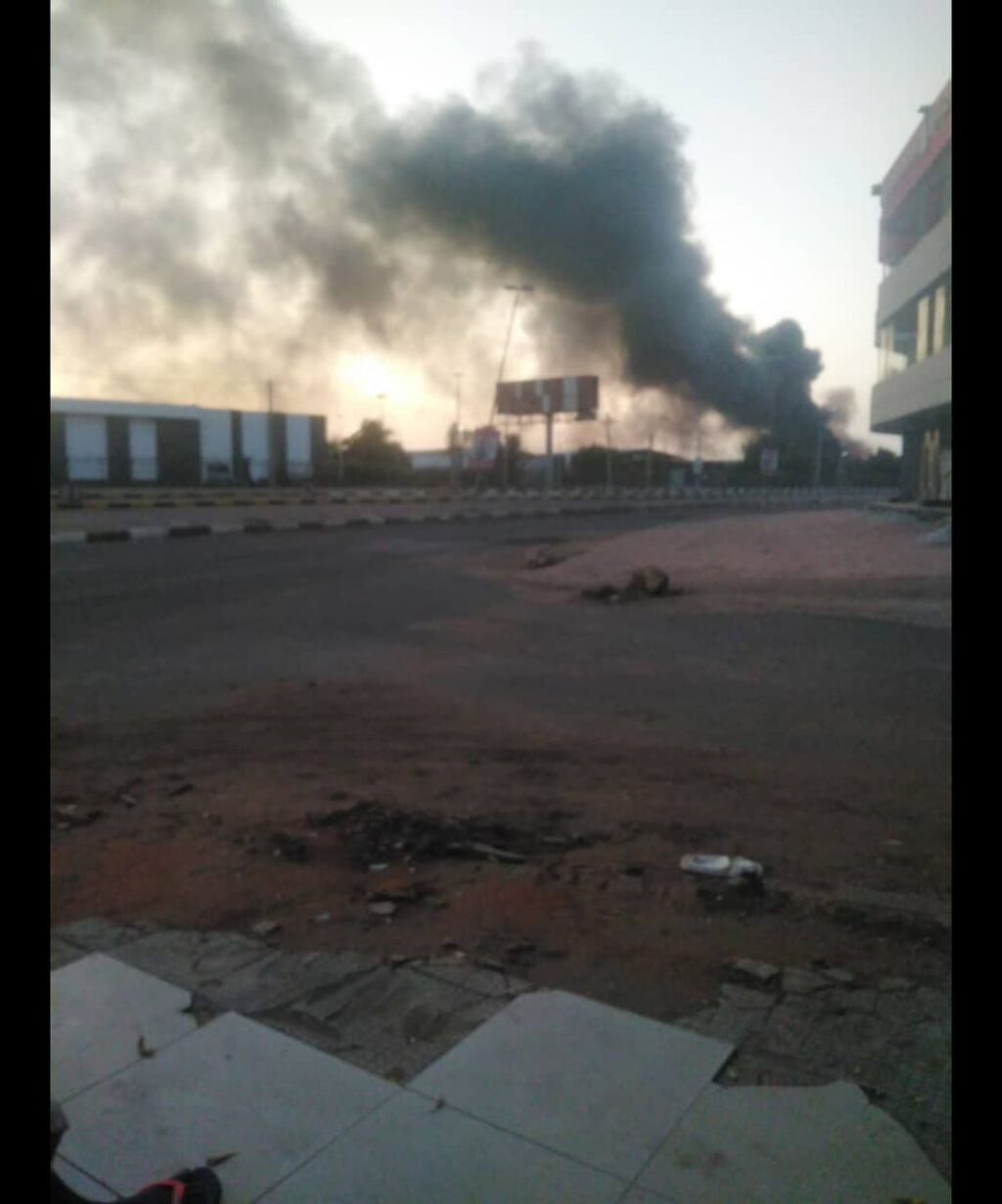
KHARTOUM – A swarm of drones struck Sudan’s capital, Khartoum, in the early hours of Tuesday, October 21, targeting Khartoum International Airport just one day before it was scheduled to reopen for domestic flights.
According to information obtained by Sudans Post and verified through eyewitness accounts, explosions were heard across the city around dawn, followed by intense anti-aircraft fire from the Sudanese Armed Forces (SAF) defenses stationed near the airport. Residents reported waking to the heavy sound of successive blasts and heavy gunfire as the army attempted to intercept multiple incoming drones.
A Military source told Sudans Post that the attack was carried out by the paramilitary Rapid Support Forces (RSF), which launched at least six drones targeting both the airport and the Marikhiyat power substation in Omdurman. The source said that SAF air defenses successfully repelled the assault, and the initial assessments indicate limited material damage.
The source described the strike as a deliberate attempt by the RSF to send a political message, namely, that Khartoum remains unsafe and unstable despite government efforts to restore basic services and reopen key facilities. The timing of the attack, coming less than 24 hours before the airport’s scheduled reopening, was interpreted by officials as a warning to discourage civilians and airlines from resuming activity in the capital.
Last week, Khartoum endured a similar wave of drone attacks reportedly launched by the RSF. Those strikes targeted several locations across Khartoum State and the northern town of Dabba, resulting in multiple deaths and injuries. The recurrence of these attacks underscores the RSF’s increasing reliance on unmanned aerial systems as part of its military strategy.
Recent assessments from the Yale Humanitarian Research Lab confirm that the RSF has developed advanced drone capabilities, enabling it to strike targets anywhere within Sudan. The report, based on satellite imagery and field analysis, highlights how the RSF’s drone operations have expanded both in range and precision, posing a growing threat to strategic sites under army control.
Officials from Sudan’s Civil Aviation Authority announced earlier this week that Khartoum International Airport would resume domestic flights starting Wednesday, October 22. The decision followed months of rehabilitation work after the facility suffered extensive damage during the outbreak of war more than two years ago. The aviation authority stated that technical and safety measures had been completed to allow for gradual reopening, signaling a symbolic step toward restoring normalcy in the capital.
However, Tuesday’s attack has raised new concerns about the safety of aviation operations in a city still divided by frontlines and prone to aerial assaults. The drone strike not only disrupted the final stages of airport preparations but also served as a stark reminder of the persistent insecurity that continues to grip Sudan’s war-torn capital.
While officials have yet to release a detailed statement on the extent of the damage, security sources indicated that cleanup operations are underway to assess and repair affected infrastructure. The de facto government is expected to issue an official statement clarifying the impact of the attack and confirming whether the planned reopening will proceed as scheduled.
Khartoum International Airport, once Sudan’s busiest aviation hub, has been largely out of service since April 2023, when fighting between the SAF and the RSF erupted across the capital. The facility has since become a symbol of the wider struggle for control over Sudan’s critical infrastructure, a contest that continues to leave deep marks on the lives of millions of civilians trapped in the crossfire.












